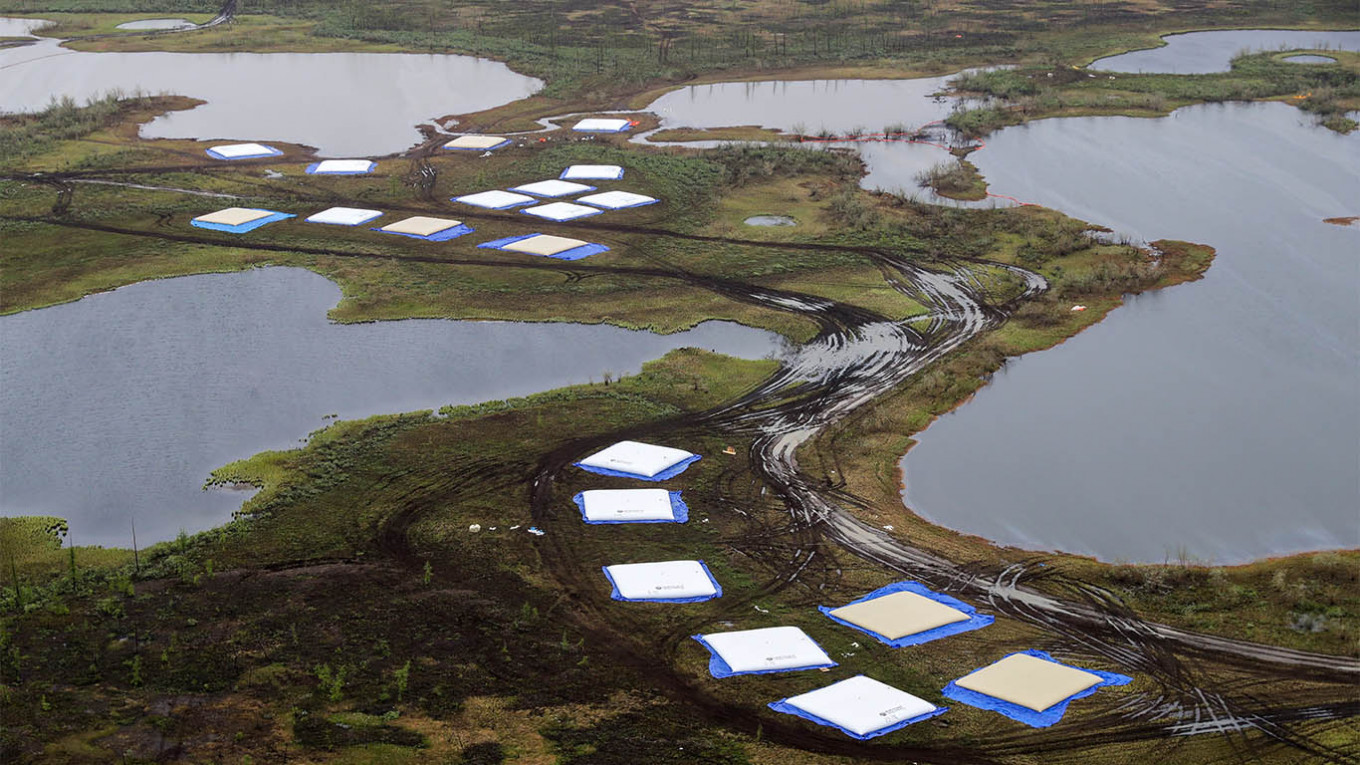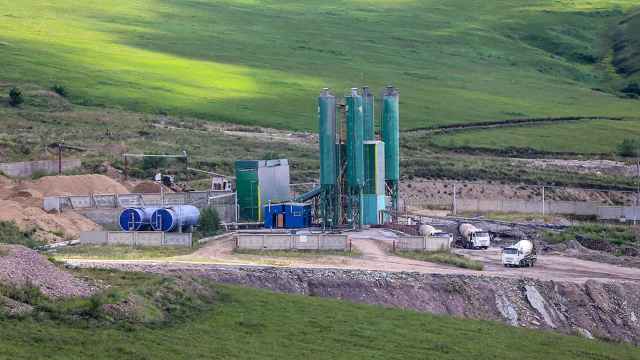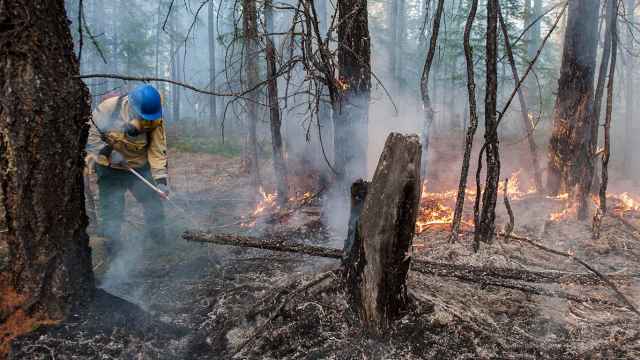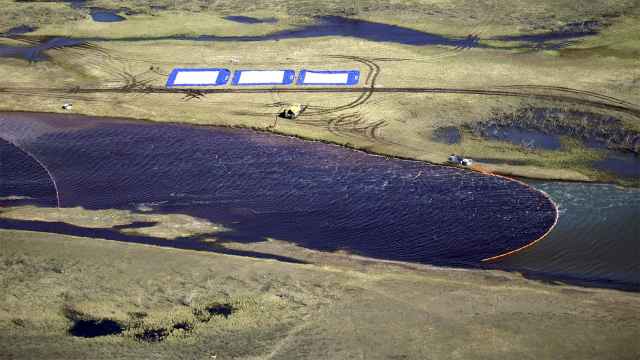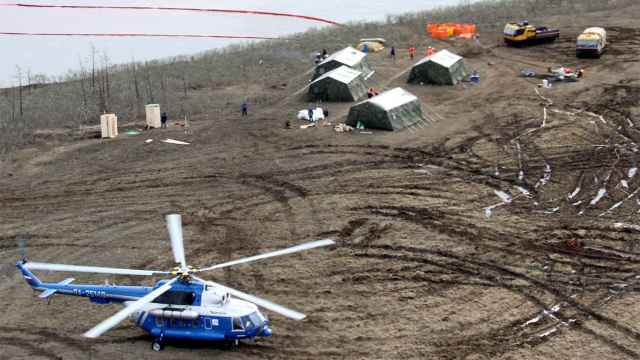Russian authorities plan to build a “flexible pipeline” to pump out toxic fuel collected from the site of the largest-ever oil spill in the Arctic.
More than 21,000 metric tons of diesel leaked into soil and rivers after a fuel tank collapsed on May 29 at a power plant near the Siberian city of Norilsk. Officials say the cleanup could take years to complete and that the spill is unprecedented for the region.
“We’re faced with the task of relocating the collected fuel to disposal sites. Our solution here is slightly different than previously assumed,” Emergency Situations Minister Yevgeny Zinichev said Friday.
“Most likely, a flexible pipeline will be built which will be extended to disposal sites,” Zinichev told President Vladimir Putin via videoconference.
He said around 32,000 cubic meters (32 metric tons) of fuel-polluted water and over 25,000 cubic meters (25 metric tons) of oil were collected, as well as 103,000 metric tons of soil. The materials were placed in 103 sealed tanks.
Russia’s Marine Rescue Service said Wednesday that 700 workers have finished clearing diesel from the surface of the River Ambarnaya, the most-polluted waterway from the disaster.
Work was continuing to clean smaller waterways, including with the use of sorbents, a material used to soak up fuel along the river banks and remove oil residue from surfaces.
Officials have said that the cleanup had stopped the fuel from spreading further north, where it risked entering the Arctic Ocean.
The accident took place at a power plant owned by a subsidiary of metals giant Norilsk Nickel, which has said the collapse may have been caused by melting permafrost due to climate change.
Greenpeace Russia says it is the first such large-scale spill in the region beyond the Arctic Circle.
The NGO estimates the amount of damages to the Arctic waterways at 100 billion rubles ($1.4 billion).
AFP contributed reporting to this article.
A Message from The Moscow Times:
Dear readers,
We are facing unprecedented challenges. Russia's Prosecutor General's Office has designated The Moscow Times as an "undesirable" organization, criminalizing our work and putting our staff at risk of prosecution. This follows our earlier unjust labeling as a "foreign agent."
These actions are direct attempts to silence independent journalism in Russia. The authorities claim our work "discredits the decisions of the Russian leadership." We see things differently: we strive to provide accurate, unbiased reporting on Russia.
We, the journalists of The Moscow Times, refuse to be silenced. But to continue our work, we need your help.
Your support, no matter how small, makes a world of difference. If you can, please support us monthly starting from just $2. It's quick to set up, and every contribution makes a significant impact.
By supporting The Moscow Times, you're defending open, independent journalism in the face of repression. Thank you for standing with us.
Remind me later.


